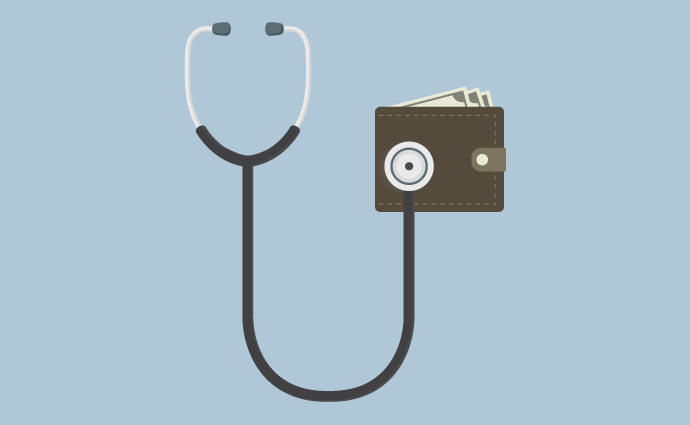Physicians Propose 5 Quality Measures to Improve Medical Billing
Proposed metrics of billing quality aim to tackle healthcare price transparency and reduce out-of-pocket costs in order to shift to patient-centered care.

Source: Thinkstock
- Medical billing quality is a type of medical quality and should be tracked the same way healthcare organizations track medical complication rates and other quality indicators, two physicians from Johns Hopkins University recently argued.
In a recent Viewpoint article in JAMA, physicians Simon C. Mathews, MD, and Martin A. Makary, MD, MPH, proposed five quality measures to track and improve medical billing quality.
The first proposed metric determines if healthcare organizations routinely provided the cost of procedures in a clear and organized way to patients. Although bills have been listed in medical codes and terms in the past, patients must be able to decipher the information given to them. This is a vital step toward patient-centered billing, the physicians argued.
The physician also proposed a quality measure around price transparency. The second metric asks if prices were readily available by patient demand. While some US medical centers provide prices for medical services, others fail to do so, which results in poor care quality.
The third metric recommends that healthcare organizations track if patients have the right to speak with an appropriate individual about any bill concerns. Ensuring patients have this resource can prevent errors can be corrected and provide accommodations to patients before a problem arises. This may tackle the issue of patients feeling neglected when it comes to discussing medical bills, the physician elaborated.
Suing patients over unpaid medical bills is a violation of the core mission of hospitals, which is to be a safe place for individuals with any illnesses or injuries and to care for patients regardless of the situation, Mathews and Makary stated. Therefore, the fourth metric looks into whether health systems are suing patients.
The fifth and final metric proposed addresses two matters. First, the measure addresses the double standard of expecting patients who are paying out of pocket to pay more than others for the same care. Second, the quality measure assesses if patients are charged directly for complications that were due to a serious adverse event. This may include wrong-side surgery or operations to remove a retained foreign body, according to Mathews and Makary.
Healthcare organizations should adopt these medical billing quality measures to guarantee patients are not only receiving high-quality clinical care, but also a top-notch financial experience.
Financial harm resulting from medical care should not be separated from clinical consequences of care, as both of these aspects have a significant influence on the health and well-being of patients. The quality of the financial experience may also impact access to care, the physicians stated.
Medical bills accounted for 58 percent of all debt in 2019, researchers cited from a 2019 Consumer Finance survey of five million people. And 64 percent of 1,000 patients said that they delayed or neglected seeking medical care in the past year because of medical bill concerns, according to a February 2018 report.
Patients with private or no insurance oftentimes receive bills with prices that exceed the allowable Medicare amount. Yet, healthcare organizations are failing to provide patients with healthcare cost expectations to help them shoulder the financial burden of medical care. Only 53 out of 101 hospitals provided a price for standard coronary artery bypass graft surgery, a 2019 JAMA study found.
Quality measures that assess medical billing performance can help to improve patient financial experience and ultimately the bottom line.
The physicians from Johns Hopkins advised measurement organizations such as CMS, Leapfrog Group, US News, and other organizations that have a core goal to provide transparency and the utmost quality of care to patients to incorporate medical billing measures into their quality assessments.
“Recognizing that billing quality is valuable information, a more holistic and patient-centered set of outcomes also could be measured for benchmarking and performance improvement,” Mathews and Makary concluded.
